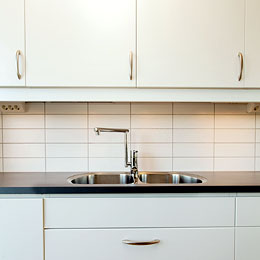 There appears to be plenty of information on equipment and supplies, cleaning/sanitation/sterilization, yet I”m having a difficult time of locating a protocol specifically related to maintaining a production area for a home winemaker (counters, floor, fixtures, sinks, drains, walls, etc.). I currently clean up splashes as they occur and monthly I do a fairly thorough wipe down of all surfaces with a B-brite dilution and spray with a kms [potassium metabisulfite]/citric solution. Hope you can provide some guidance.
There appears to be plenty of information on equipment and supplies, cleaning/sanitation/sterilization, yet I”m having a difficult time of locating a protocol specifically related to maintaining a production area for a home winemaker (counters, floor, fixtures, sinks, drains, walls, etc.). I currently clean up splashes as they occur and monthly I do a fairly thorough wipe down of all surfaces with a B-brite dilution and spray with a kms [potassium metabisulfite]/citric solution. Hope you can provide some guidance.
Name: Roy R.
State: North Carolina
Hello Roy,
You are absolutely correct. There is not much information out there in regards to sanitizing a winemaking area. You can find some mention of it in several winemaking books, but not much more than a paragraph.
I have to tell you that what you are doing is pretty much what I do, however there are some differences in how I approach it.
- The first main difference is that I do not clean on a monthly schedule. I clean and sanitize right before I plan to use the area. These mean I sanitize anytime I plan on exposing the wine or wine must.
- The second difference is that I do not use B-Brite as a wipe-down solution. This product works well for sanitizing wine bottles, fermenters, stirring paddles, etc, but I have found Five Star: Star San to be better for wiping-down counters. It has a slight foaming action to it that helps get into corners an crevasse. After this, I spray everything down with a solution of sodium metabisulfite and citric acid, just as you do.
- The last difference is, that since I do my winemaking in a basement area that has exposed floor joists, etc., I feel it is necessary to spray the joist and sub-flooring that is immediately over the winemaking area. I do not do this every time, but only on occasion. I use the same sodium metabisulfite/citric acid mix that I use to spray the counter, faucets, etc.
One additional thing I do is anytime I’m checking on the wine, or just down there, I will spray the sulfite solution on to the air locks and around the neck area of any carboys.
Having said all of this, one thing I would like to make clear is that most of the spoiled wines we run across do not become infected because of an unsanitary work area, but rather, because of unsanitary wine making equipment. So while it is always good to keep your winemaking area sanitary, it is critical that you keep your wine making equipment sterile.
Happy Winemaking,
Ed Kraus
———————————————————————————————————
Ed Kraus is a 3rd generation home brewer/winemaker and has been an owner of E. C. Kraus since 1999. He has been helping individuals make better wine and beer for over 25 years.
